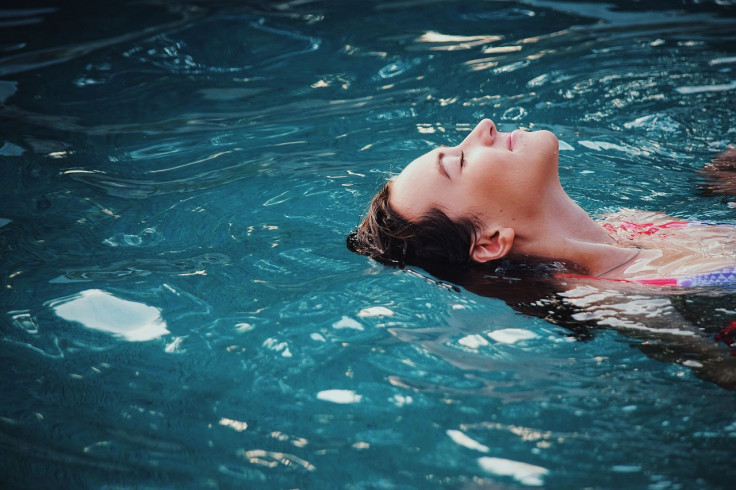
Cold water swimming could help alleviate symptoms associated with menopause such as hot flushes, anxiety and mood swings, according to a recent study.
Menopause marks the end of the female menstrual cycle. It occurs when the person has gone without a menstrual period for 12 months. The transition phase usually happens between ages 45 and 55, signifying the onset of various symptoms that can often disrupt one's sleep, mood and overall well-being.
To know the effects of cold water swimming on women's health and well-being, researchers behind the study surveyed 1,114 women, 785 of whom were going through menopause. The researchers then noted that cold water swimming could provide a range of physical and mental health benefits for menopausal women. Their findings were published in Post Reproductive Health.
"The findings showed that menopausal women experienced a significant improvement in anxiety (as reported by 46.9% of the women), mood swings (34.5%), low mood (31.1%) and hot flushes (30.3%) as a result of cold water swimming. In addition, a majority of women (63.3%) swam specifically to relieve their symptoms," a news release said.
Some respondents described the cold swimming as "an immediate stress/anxiety reliever" and something that helped them with "healing." For some participants, cold water swimming not only helped with menopause symptoms but was a chance to be outdoors, improve mental health and exercise.
"Cold water is phenomenal. It has saved my life. In the water, I can do anything. All symptoms (physical and mental) disappear and I feel like me at my best," a 57-year-old woman said about her experience, as per the news release.
Earlier studies have shown that cold water could improve mood and reduce stress in outdoor swimmers. Ice baths have been known to help muscle repair and recovery in athletes.
"Our study supports these claims, meanwhile the anecdotal evidence also highlights how the activity can be used by women to alleviate physical symptoms, such as hot flushes, aches and pains," the study's senior author, Professor Joyce Harper from UCL EGA Institute for Women's Health, England, said.
"The majority of women swim to relieve symptoms such as anxiety, mood swings and hot flushes. They felt that their symptoms were helped by the physical and mental effects of the cold water, which was more pronounced when it was colder," she added.
However, more research is needed to understand the specific frequency, duration, temperature and cold water exposure necessary to reduce the symptoms.
"How often they swam, how long and what they wore were also important. Those that swam for longer had more pronounced effects. The great thing about cold water swimming is it gets people exercising in nature, and often with friends, which can build a great community," Harper said further.
The senior author said people should be careful when experimenting with cold water swimming, as there is a risk of infections (depending on the quality of water), hypothermia, cold water shock, cardiac rhythm disturbances and even drowning.
"However, we hope our findings may provide an alternative solution for women struggling with menopause and encourage more women to take part in sports," Harper said.







